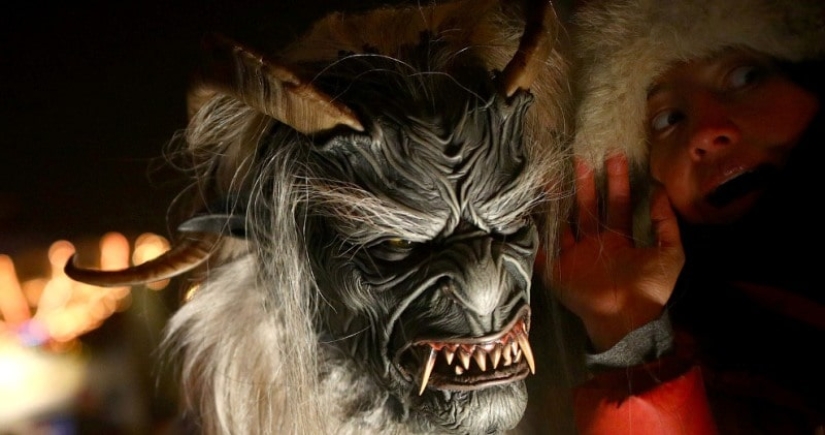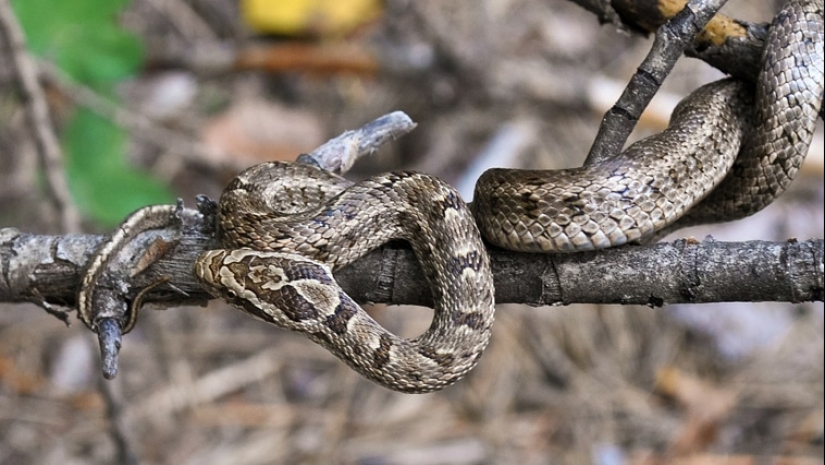"Like the devil from incense": how did this phrase appear and what other smells are the evil spirits afraid of
Categories: History
By Pictolic https://pictolic.com/article/like-the-devil-from-incense-how-did-this-phrase-appear-and-what-other-smells-are-the-evil-spirits-afraid-of.htmlSmells have always played a big role in people's lives. Many of them have been used for medicinal purposes for centuries, which gave rise to a whole trend in alternative medicine - aromatherapy. Smells also helped to fight evil forces. Surely everyone has heard the phrase "Runs like hell from incense." Why does frankincense frighten the enemy of the human race so much and what else did our ancestors scare away evil spirits?

Frankincense is an aromatic resin obtained from only three species of trees of the genus Boswellia. They grow in a warm climate, so frankincense is produced in East Africa, the Arabian Peninsula and Asia. In the East, frankincense has been used since time immemorial, but it came to Russia from Byzantium, along with Christianity.

Incense is used during divine services, placed in a censer with hot coals or in lamps. For a long time it has been believed that the aroma of incense is pleasing to God and therefore terribly unpleasant to evil spirits. Frankincense was even among the gifts brought by the magi to the infant Jesus. That is why fumigation with the smoke of this resin was often performed during exorcism and exorcism from the premises.
Once incense was used not only by the clergy, but also by ordinary people. They fumigated places where people gathered for the holidays. It was believed that not only devils were afraid of frankincense, but also people who sold their souls to the devil and just those whose conscience is unclean. There was a belief that everyone who is somehow connected with the forces of evil, try to leave the place where incense smells as soon as possible. That's how the expression "Runs like the devil from incense" appeared.
You might think that garlic has always been in Russia. But this is not the case. Like many other cultures, it was brought to us from distant countries. Surprisingly, garlic, like frankincense, came to our region from Byzantium and at about the same time — in the 9th century. Garlic quickly fell in love with ordinary people, because although it was an overseas product, it was much cheaper than incense.

In ancient books there were many recipes for the use of garlic for medicinal purposes. It was believed that if you eat it daily, then the skin will be clean, and a cold will never stick. Therefore, despite not the most pleasant smell, garlic was used everywhere. It is amazing that for many centuries before the advent of modern science, people knew about its medicinal properties. Now biochemists and doctors fully confirm the antibacterial effect of garlic.
In Russia, they also believed that garlic is feared not only by disease, but also by evil forces. When collecting husbands for war or just on a long journey, wives always put a bag of garlic in their bag. In some areas, such a bag was generally hung around the neck, next to the cross. Now we know that not only Slavs believed in the protective properties of this plant. Garlic is a sure remedy for any undead in Europe and in the USA.

Women especially appreciated the properties of garlic. Peasant women rubbed their breasts, armpits and feet with them during Lent and on Christmas Eve. The smell of garlic protected from devilish obsessions and the evil eye. For the same purpose, garlic cloves were woven into the braids of brides before the wedding.
It's a bit insulting that everyone knows about the protective properties of overseas frankincense and garlic, but almost no one has heard about our Russian ash. Moreover, modern youth often do not know what kind of tree it is. And just a couple of hundred years ago, people believed that the smell of ash wood could scare away snakes.

Some peasants, going to mowing, even soaked shirts and trousers in a decoction of the bark of this tree. For some reason, it was believed that snakes do not sting someone who smells of ash and even fall into a stupor when they smell this tree. Especially superstitious people believed that it was possible to control snakes with an ash wand. It's hard to say how many people paid for their naivety and were stung by dangerous reptiles.
Even more dangerous was the belief that a person bitten by a reptile could be healed with the same ash wand. You just had to attach it to the bite site and you didn't have to worry anymore. Since the snake was a symbol of the devil, the properties of ash were projected onto the evil spirit. Staffs and crosses made of this tree helped to fight devils no worse than aspen ones.
"There is a Russian spirit, there is a smell of Russia," Alexander Pushkin wrote in the poem "Ruslan and Lyudmila". "It smells like Russian spirit!" Baba Yaga grumbled discontentedly, before Ivan's arrival. Hardly anyone thought about this very "spirit" while reading a passage about the Lukomorye or Russian folk tales. For a modern person, this phrase does not make any sense, but even in the time of Pushkin everything was different. In the old days, it was believed that the smell of the human body has strong protective properties.

A lot of customs were associated with the smell of a person. For example, if a woman took a child from a cradle, then a boot or felt boots were often put in its place. The shoes had to be men's, certainly from the right foot and necessarily worn, with a "spirit". This helped to drive away the evil spirits who were trying to sneak into the baby's bed to harm the baby. Men's shoes were best suited as a talisman, since the "Russian spirit" was more effective for people who were strong in spirit and body.
It is interesting, but in some northern villages of Russia this custom has been preserved until now. However, it no longer looks so intimidating from the point of view of hygiene. It is not a dirty man's boot that is placed in the baby's crib, but a decorative toy boot-a toy.
Recent articles

We present you a selection of amazing beaches — but today these are not standard holiday destinations, but really unusual places. ...

Aerial photographer cronista johnny Miller demonstrate dramatically the gap between rich and poor in cities of South Africa, Mexico ...

On April 22, 1923, Bettie Page was born in Nashville, who became a sex symbol throughout the country in the middle of the century. ...